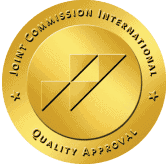When someone you care about starts drinking more frequently or their personality seems to shift dramatically, you might wonder if you’re witnessing the development of alcoholism. Alcohol use disorder affects millions of people, creating distinct behavioral patterns that go far beyond occasional drinking. These “alcoholic personality traits” aren’t character flaws—they’re symptoms of a complex condition that rewires how the brain responds to stress, relationships, and daily challenges.
You’ll often notice these changes gradually: increased defensiveness, social withdrawal, or mood swings that seem out of character. Research shows that people with alcohol dependency commonly exhibit traits like impulsiveness, secrecy, and heightened sensitivity—behaviors that stem from the psychological and physical effects of excessive alcohol consumption.
Recognizing these patterns early can make the difference between watching someone struggle in silence and helping them find the support they need. Understanding what drives these behavioral changes empowers you to approach the situation with both knowledge and compassion.
Understanding Alcoholism and Alcoholic Behavior
Alcoholism is a chronic mental health disorder that progresses from problematic drinking to severe, uncontrollable alcohol abuse. The condition affects brain chemistry and creates both physical and psychological dependence on alcohol. Understanding this progression helps you recognize when casual drinking becomes a serious problem requiring professional intervention.
Alcoholic personality traits emerge as the disease develops and intensifies over time. These characteristics represent symptoms of alcohol use disorder rather than inherent personality flaws. The brain’s reward system becomes hijacked by alcohol consumption, leading to observable changes in behavior and decision-making patterns.
The Progressive Nature of Alcoholism
Alcoholism typically develops through distinct stages, each marked by specific behaviors of an alcoholic. Early-stage drinking problems often involve increased tolerance and occasional binge drinking episodes. Mid-stage alcoholism introduces more frequent drinking patterns and the emergence of withdrawal symptoms when alcohol isn’t available.
Advanced alcoholism creates complete dependence where individuals prioritize alcohol over responsibilities, relationships, and personal health. Alcoholic behavior patterns become deeply ingrained during this stage, making recovery more challenging without professional treatment.
Core Behavioral Changes
Characteristics of alcoholics include several observable patterns that distinguish problematic drinking from casual consumption:
| Behavioral Category | Specific Traits |
|---|---|
| Emotional Regulation | Mood instability, increased irritability, defensive responses |
| Social Interactions | Isolation, secretive behavior, manipulative tendencies |
| Decision Making | Impulsive choices, reckless behavior, poor financial judgment |
| Responsibility Management | Neglecting obligations, prioritizing alcohol over commitments |
| Coping Mechanisms | Using alcohol for stress relief, anxiety management, depression |
Psychological Impact on Personality
Personality traits of an alcoholic reflect the disorder’s impact on brain function and emotional regulation. Individuals may become increasingly sensitive to criticism while simultaneously displaying defensive behaviors when confronted about their drinking. Impatience and aggravation occur more frequently as alcohol tolerance builds and withdrawal symptoms intensify.
The constant focus on alcohol availability creates anxiety in situations where drinking isn’t possible. Someone with alcohol dependence may avoid social events without alcohol present or experience distress when their drink order takes too long at restaurants.
The Brain Chemistry Connection
Alcoholism fundamentally alters brain chemistry, particularly in areas responsible for decision-making and impulse control. These neurological changes explain why alcoholic behavior often seems uncharacteristic of the person’s previous personality. The brain’s reward pathways become conditioned to prioritize alcohol over other activities and relationships.
This chemical dependence creates a cycle where drinking temporarily relieves withdrawal symptoms but eventually worsens the underlying condition. Understanding this biological component helps explain why willpower alone rarely succeeds in overcoming alcohol addiction.
Financial and Social Consequences
Characteristics of an alcoholic frequently include financial difficulties stemming from excessive alcohol purchases and poor decision-making. Job performance may decline due to hangovers, absenteeism, or drinking during work hours. These financial struggles often compound the stress that drives continued alcohol consumption.
Social withdrawal becomes common as individuals attempt to hide their drinking habits from family and friends. This isolation further reinforces the cycle of alcohol dependence by removing natural support systems and accountability measures.
Core Behavioral Traits of an Alcoholic

Core behavioral traits of an alcoholic represent consistent patterns that distinguish alcohol use disorder from occasional heavy drinking. These characteristics of alcoholics emerge as the addiction progresses and becomes central to daily functioning.
Inability to Control Drinking
The inability to control drinking stands as the most defining trait of an alcoholic. You’ll notice this pattern when someone consistently drinks more than intended or can’t stop once they start drinking. This loss of control manifests in several ways:
- Failed attempts to cut back even though repeated promises to limit consumption
- Binge drinking episodes that extend far beyond the planned duration
- Morning drinking to manage withdrawal symptoms or anxiety
- Inability to have “just one drink” leading to complete intoxication
Research indicates that 88% of adults with alcohol use disorder report drinking more than they initially planned during episodes. This behavioral pattern develops as alcohol affects the brain’s reward system, making it increasingly difficult to exercise self-control around drinking situations.
Prioritizing Alcohol Above All Else
Alcoholic behavior patterns consistently show alcohol taking precedence over important life responsibilities and relationships. This prioritization becomes evident through specific actions and decisions:
Social choices revolve around alcohol access:
- Selecting events based on alcohol availability
- Avoiding alcohol-free gatherings or social situations
- Planning daily schedules around drinking opportunities
- Maintaining relationships primarily with other heavy drinkers
Neglecting core responsibilities:
- Missing work or school due to hangovers or drinking episodes
- Ignoring family obligations for drinking time
- Abandoning hobbies that don’t involve alcohol consumption
- Declining performance in professional or academic settings
Studies show that 65% of individuals with alcohol dependency report choosing alcohol-related activities over family time or career advancement opportunities.
Making Excuses and Shifting Blame
Making excuses and shifting blame represents a defensive mechanism that characterizes alcoholic personality traits. This behavior pattern serves to protect the addiction while avoiding accountability for alcohol-related consequences.
Common excuse patterns include:
- Attributing drinking to work stress or relationship problems
- Claiming alcohol helps with sleep or anxiety management
- Minimizing consumption by comparing to others’ drinking habits
- Justifying drinking as deserved relaxation or reward
Blame-shifting behaviors manifest as:
- Holding others responsible for personal drinking choices
- Blaming family members for creating stressful situations
- Attributing job problems to unfair treatment rather than alcohol impact
- Claiming that criticism about drinking drives more alcohol use
| Behavioral Trait | Frequency Among Alcoholics | Impact on Recovery |
|---|---|---|
| Loss of drinking control | 92% | Severely impedes |
| Prioritizing alcohol | 78% | Moderately impedes |
| Making excuses | 85% | Significantly impedes |
| Blame-shifting | 71% | Moderately impedes |
These traits of an alcoholic typically intensify as the addiction progresses, creating increasingly complex barriers to recovery and self-awareness.
Psychological and Emotional Characteristics

The psychological and emotional landscape of alcoholism reveals deeper patterns that extend beyond observable behaviors. These internal characteristics often drive the behavioral changes discussed earlier and create lasting challenges for recovery.
Low Self-Esteem and Guilt
Low self-esteem stands as perhaps the most telling marker of alcoholism, creating a destructive cycle that reinforces addictive behaviors. You might notice individuals with alcohol use disorder exhibiting a persistent sense of inadequacy and poor self-worth, even though maintaining outward perfectionistic tendencies. This low self-esteem both contributes to and results from drinking habits, establishing a vicious cycle that strengthens addiction over time.
Guilt accompanies low self-esteem as a defining characteristic of alcoholics, manifesting as persistent feelings of remorse about drinking consequences. You’ll observe that this guilt often intensifies after drinking episodes, particularly when individuals recognize the impact on their relationships and responsibilities. The combination of low self-worth and overwhelming guilt creates emotional vulnerability that makes breaking free from alcohol dependence exceptionally difficult.
The perfectionism associated with low self-esteem presents another layer of complexity. Individuals hold themselves to unrealistic standards while simultaneously feeling inadequate, creating internal tension that alcohol temporarily relieves but eventually worsens.
Using Alcohol as a Coping Mechanism
Alcohol becomes the primary tool for managing negative emotions and life stressors among those with alcohol use disorder. You’ll find that many alcoholics drink specifically to numb feelings of insecurity, depression, stress, or rejection, though this strategy only compounds their problems over time. This emotional numbing represents a maladaptive coping strategy that prevents healthy emotional processing.
The psychological dependence on alcohol as a coping mechanism extends beyond managing major stressors to handling everyday situations and emotions. You can identify this pattern when individuals require alcohol to feel comfortable in social situations, deal with work pressure, or navigate relationship conflicts. This reliance creates a psychological need that persists even when physical tolerance hasn’t significantly increased.
Mental health conditions frequently co-occur with alcoholism, with many individuals using alcohol to self-medicate symptoms of anxiety, depression, or trauma. The temporary relief alcohol provides for these underlying conditions reinforces the behavior, creating a dual challenge that requires addressing both the addiction and the mental health issues simultaneously.
Denial and Rationalization
Denial emerges as a fundamental defense mechanism that allows alcoholics to continue drinking even though the mounting consequences. You’ll recognize this trait when individuals consistently reduce or deny the severity of their drinking and its impact on relationships, work, and health. This denial serves as psychological protection against confronting the reality of their addiction.
Rationalization works alongside denial to justify continued alcohol use through elaborate excuse-making. Individuals create sophisticated explanations for their drinking, blaming external circumstances like stress, social obligations, or celebrating minor successes rather than accepting responsibility for their choices. This rationalization often involves shifting blame to spouses, bosses, or family members for problems directly related to their alcohol consumption.
The combination of denial and rationalization creates significant barriers to treatment engagement. You’ll observe that confronting these defense mechanisms often triggers defensiveness and hostility, as acknowledging the truth threatens the psychological structure that enables continued drinking. This defensive response represents the mind’s attempt to protect the addiction from external challenges that might disrupt the established pattern.
Social and Financial Impact Traits

Alcoholic behavior patterns extend beyond personal struggles to create profound disruptions in social connections and financial stability. These characteristics of an alcoholic often manifest as deteriorating relationships, mounting debts, and increasingly risky decisions that compound the challenges of recovery.
Neglecting Responsibilities and Relationships
Alcoholism impairs cognitive and physical functions that directly affect your ability to maintain work commitments, family duties, and social connections. You may find yourself consistently missing work deadlines, forgetting important family events, or withdrawing from friends who once provided emotional support. Hangovers and alcohol’s physical effects disrupt normal functioning, making it difficult to meet daily obligations or engage meaningfully with loved ones.
The focus on alcohol gradually dominates your priorities, causing you to choose drinking over maintaining relationships or fulfilling responsibilities. Family members often experience emotional distance as your attention shifts away from their needs toward securing and consuming alcohol. This neglect creates a cycle where damaged relationships provide fewer sources of support, potentially driving you deeper into alcohol dependency.
Your role as a parent, spouse, or employee becomes secondary to your drinking habits. You might skip children’s school events, ignore household maintenance, or arrive late to work meetings. These behaviors reflect the progressive nature of alcohol use disorder, where the substance increasingly controls your decision-making processes.
Financial Struggles Due to Drinking
Alcohol addiction creates significant financial strain through multiple pathways that compound over time. You spend substantial amounts on purchasing alcohol for home consumption, bar visits, and social drinking occasions. These costs accumulate rapidly, particularly when tolerance increases and you require larger quantities to achieve the same effects.
Your drinking habits often trigger unwise spending decisions, including buying rounds for others at bars or making impulsive purchases while intoxicated. Poor judgment during drinking episodes leads to financial choices you wouldn’t make while sober, creating debt that persists long after the alcohol’s effects wear off.
Job performance deteriorates as alcohol affects your reliability, productivity, and professional relationships. You may experience increased absenteeism, reduced work quality, or conflicts with supervisors and colleagues. These issues can result in demotions, reduced hours, or job termination, further destabilizing your financial situation. Medical expenses from alcohol-related health problems add another layer of financial burden that strains personal and family resources.
Engaging in Risky Behaviors
Alcoholic personality traits include increased participation in dangerous activities that create legal problems and personal risks. You become more prone to disorderly conduct, physical altercations, and confrontations that wouldn’t occur during periods of sobriety. These behaviors often result in legal consequences, including fines, court costs, and potential jail time.
Driving under the influence represents one of the most serious risky behaviors associated with alcoholism. You may rationalize your ability to drive safely even though impairment, putting yourself and others at significant risk. DUI charges carry severe financial penalties, license suspension, and potential criminal records that affect employment opportunities.
Domestic disputes and family conflicts increase as alcohol affects your emotional regulation and judgment. You might engage in arguments, verbal abuse, or physical confrontations with family members, creating trauma that damages relationships permanently. These incidents often involve law enforcement, leading to restraining orders, legal proceedings, and further social isolation that reinforces the addiction cycle.
How Alcohol Affects Personality and Brain Function
Alcohol fundamentally alters your brain’s structure and function, creating the distinctive alcoholic personality traits that emerge over time. These changes occur at both the neurochemical and structural level, transforming how you process emotions, make decisions, and interact with others.
Brain Chemistry Disruption
Alcohol acts as a central nervous system depressant that significantly impacts your brain’s neurotransmitter systems. The substance alters gamma-aminobutyric acid (GABA) and dopamine levels, which directly control mood regulation and reward processing. A 2021 study demonstrated that alcohol suppresses prefrontal cortex activity by 23%, making it harder for you to manage emotional responses appropriately.
Your brain’s reward pathways become hijacked through repeated alcohol exposure. This biochemical hijacking drives the compulsive behaviors of an alcoholic by rewiring neural circuits to prioritize alcohol consumption over other activities. The modified neurotransmitter activity creates a cycle where your brain craves alcohol to maintain chemical balance.
Personality Changes Under Alcohol’s Influence
Drinking removes your social inhibitions and filters, making underlying emotions and tendencies more pronounced. These intoxicated behaviors don’t represent your “true” personality but rather reveal suppressed internal states that alcohol brings to the surface. Characteristics of alcoholics include heightened emotional responses, increased impulsiveness, and altered judgment patterns.
The substance impairs your cognitive functions, including memory formation, decision-making abilities, and inhibitory control. These impairments create the erratic behavioral patterns commonly associated with alcohol dependency.
Long-Term Brain Structure Changes
Chronic alcohol use causes permanent structural changes in your brain tissue. Heavy drinking leads to neuron shrinkage and functional impairments in areas controlling balance, memory, speech, and judgment. These physical alterations explain why alcoholic behavior patterns persist even during periods of sobriety.
| Brain Region | Function Affected | Behavioral Impact |
|---|---|---|
| Prefrontal Cortex | Executive function, decision-making | Impaired judgment, poor planning |
| Hippocampus | Memory formation | Memory gaps, learning difficulties |
| Cerebellum | Balance, coordination | Physical coordination problems |
| Limbic System | Emotion regulation | Mood swings, emotional instability |
Adolescents face particularly severe risks from alcohol-induced brain changes. Their developing neural pathways are more susceptible to lasting damage, making early intervention critical for preventing permanent cognitive impairment.
Emotional and Behavioral Transformation
Your emotional regulation becomes significantly compromised through alcohol’s impact on brain chemistry. The substance disrupts neurotransmitter balance, leading to increased irritability, anxiety, and depression. These mood changes contribute to the characteristics of an alcoholic including emotional volatility and unpredictable responses to stress.
Alcohol dependency creates a cycle where you use drinking to manage negative emotions, but the substance worsens emotional instability over time. This pattern reinforces addictive behaviors as your brain becomes rewired to depend on alcohol for emotional equilibrium.
Memory and Cognitive Function Deterioration
Excessive alcohol consumption leads to blackouts, which are memory gaps during intoxication periods. These episodes occur when alcohol prevents your brain from forming new memories, creating dangerous situations where you can’t recall your actions or decisions.
Severe alcohol overdose can shut down critical brain functions entirely, potentially causing death. This risk increases as tolerance develops and you consume larger quantities to achieve the desired effects.
The combination of structural brain changes and altered neurotransmitter function creates the persistent personality traits of an alcoholic that family members and friends often recognize as warning signs of developing alcohol use disorder.
Recognizing Subtle Warning Signs
Subtle warning signs of alcoholism often appear before obvious traits become evident. These early indicators can help you identify alcoholic behavior patterns in yourself or loved ones before the condition progresses to more severe stages.
Early Drinking Pattern Changes
You might notice drinking occurring at unusual times throughout the day. Morning drinking or consuming alcohol during work hours represents a significant shift from social drinking patterns. Someone may start drinking alone more frequently rather than only in social settings.
The frequency of drinking sessions increases gradually. What once happened on weekends extends to weeknights. Three drinks per week becomes five, then progresses to daily consumption. These incremental changes make the progression difficult to recognize.
Concealment and Deception Behaviors
Hiding alcohol consumption becomes common among those developing alcohol dependency. You may discover hidden bottles or notice someone downplaying their actual intake when questioned. They might claim to have consumed “just one or two drinks” when the evidence suggests otherwise.
Secretive behavior extends beyond hiding bottles. Someone might make frequent trips to different liquor stores to avoid detection or consume alcohol in private locations. These characteristics of an alcoholic develop as shame and guilt surrounding drinking habits intensify.
Mood and Behavioral Fluctuations
Personality changes occur in subtle ways initially. You might observe increased irritability or defensiveness when alcohol topics arise in conversation. Someone may become unusually sensitive to criticism or display mood swings that seem disproportionate to circumstances.
Social withdrawal patterns emerge gradually. The person may decline invitations to activities that don’t involve alcohol or make excuses to leave gatherings early. They might express less interest in hobbies or activities they previously enjoyed.
Physical and Cognitive Indicators
Physical changes can manifest subtly before facial signs of alcoholism become apparent. You might notice someone appearing tired more frequently or having difficulty concentrating during conversations. Sleep patterns may become irregular, with the person staying up late, drinking, or experiencing restless nights.
Memory lapses increase in frequency. Someone might forget recent conversations or repeat the same stories multiple times. These cognitive changes often get dismissed as stress-related rather than recognized as early warning signs.
Risk-Taking and Responsibility Neglect
Engaging in minor risky behaviors while drinking becomes more common. This might include driving after consuming alcohol or making impulsive financial decisions. The risks taken may seem small initially, but tend to escalate over time.
Responsibility neglect starts with minor oversights. Missing deadlines occasionally, arriving late to commitments, or postponing important tasks can indicate priorities shifting toward alcohol consumption. These behaviors of an alcoholic often develop gradually, making them easy to rationalize or overlook.
Financial and Social Red Flags
Spending patterns change subtly at first. You might notice someone choosing less expensive options in other areas to maintain their alcohol budget. Credit card bills may show frequent purchases at liquor stores or bars that seem excessive for social drinking.
Social relationships experience strain through small conflicts or misunderstandings. Someone might become argumentative after drinking or make commitments they later forget. These alcoholic personality traits create tension in relationships before major problems develop.
Recognizing these subtle warning signs enables earlier intervention and support. The characteristics of an alcoholic develop progressively, making early identification crucial for preventing more severe consequences and facilitating successful treatment outcomes.
How to Help Someone With Alcoholic Traits
Supporting someone who exhibits alcoholic personality traits requires a delicate balance of compassion and firm boundaries. The key to effective support lies in understanding that these behavioral changes stem from a medical condition rather than personal failings.
Setting Boundaries and Communication
Establishing clear boundaries protects both you and the person struggling with alcohol while maintaining the relationship’s integrity. Define specific behaviors you won’t tolerate, such as verbal abuse, financial manipulation, or drinking-related disruptions in your home. Communicate these limits directly and calmly, focusing on actions rather than character judgments.
Document incidents when boundaries are crossed to maintain clarity about patterns of behavior. This documentation helps you recognize when someone’s alcoholic behavior patterns escalate and provides concrete examples during conversations. Avoid making threats you can’t follow through on, as empty warnings undermine your credibility and enable continued destructive behavior.
Practice detaching with love when someone violates your established limits. This approach means you care about the person while refusing to enable their addiction. Express your concerns using “I” statements such as “I feel worried when you drive after drinking” rather than accusatory language that triggers defensiveness.
Consistency in enforcing boundaries prevents confusion and manipulation attempts. Many people with alcohol use disorder excel at finding loopholes or testing limits during vulnerable moments. Your unwavering commitment to these standards demonstrates that you take the situation seriously while protecting your own mental health.
Encouraging Professional Treatment
Professional intervention addresses the complex medical and psychological aspects of alcohol addiction that family support alone cannot resolve. Research shows that individuals who receive evidence-based treatment have significantly higher recovery success rates compared to those who attempt to quit independently.
Connect the person with licensed addiction counselors or therapists who specialize in alcohol use disorders. These professionals understand how characteristics of alcoholics develop and can create personalized treatment plans that address underlying triggers and behavioral patterns. Many treatment centers offer assessment services to determine the appropriate level of care needed.
Support groups like Alcoholics Anonymous provide peer connections and accountability that complement professional treatment. Statistics indicate that people who participate in support groups maintain sobriety longer than those who rely solely on willpower. Al-Anon and Alateen offer similar benefits for family members and friends affected by someone’s drinking.
Present treatment options during calm moments when the person isn’t intoxicated or defensive. Share information about different approaches, including outpatient counseling, intensive outpatient programs, and residential treatment facilities. Emphasize that seeking help demonstrates strength rather than weakness, and that professional support increases the likelihood of long-term recovery success.
Offer practical assistance with treatment logistics such as transportation to appointments, insurance verification, or childcare during therapy sessions. These concrete supports remove barriers that might prevent someone from following through with professional help. But, avoid taking complete responsibility for their recovery process, as personal ownership remains crucial for lasting change.
Common Questions
Understanding alcoholic personality traits helps you recognize when someone’s drinking has crossed from social use into problematic territory. These frequently asked questions address the most common concerns about identifying and understanding alcoholic behavior patterns.
Alcoholics exhibit several distinctive personality traits that emerge as their addiction progresses. These traits develop due to the psychological and neurological effects of chronic alcohol consumption on the brain.
Emotional and Behavioral Traits:
- Persistent focus on alcohol – Alcoholics demonstrate a strong preoccupation with alcohol, planning activities around drinking opportunities, and experiencing anxiety when alcohol isn’t available
- Blaming others – They frequently deflect responsibility for their problems by blaming family members, coworkers, or external circumstances rather than acknowledging their drinking behavior
- Low frustration tolerance – Alcoholics display poor patience for discomfort or delays and act impulsively without considering consequences
- Emotional sensitivity – They experience heightened emotional responses, feel isolated or rejected easily, and use alcohol to cope with these uncomfortable feelings
Additional Personality Changes:
- Insecurity and defensiveness when confronted about drinking habits
- Secretive behavior and manipulation to hide their alcohol consumption
- Irritability and impatience, especially when alcohol access is limited
- Social withdrawal and isolation from friends and family members
These characteristics of alcoholics intensify as the addiction progresses, creating a cycle where personality changes reinforce continued drinking behavior.
Functioning alcoholics maintain outward appearances of success while privately struggling with alcohol dependency. These individuals present unique challenges because their addiction remains hidden behind professional accomplishments and social responsibilities.
Key Characteristics of High-Functioning Alcoholics:
- Maintaining professional success – They excel at work, meet deadlines, and appear responsible even though consuming large amounts of alcohol
- High alcohol tolerance – Functioning alcoholics can consume significant quantities of alcohol without showing obvious signs of intoxication
- Using alcohol for emotional regulation – They rely on alcohol to manage stress, anxiety, and emotional pain while appearing composed externally
- Compartmentalization – They separate their drinking behavior from other life areas, drinking alone or in secret to avoid detection
Hidden Struggles:
- Internal emotional turmoil masked by external competence
- Escalating dependency even though apparent control over their drinking
- Relationship strain due to emotional unavailability or secretive behavior
- Physical health consequences that may not be immediately visible
Functioning alcoholics often resist treatment because their external success contradicts the stereotype of someone with a drinking problem, making early intervention more challenging.
What are the top 10 signs of an alcoholic?
Recognizing the warning signs of alcoholism enables early intervention and support. These signs represent the most common behaviors and symptoms that indicate problematic alcohol use.
| Sign | Description |
|---|---|
| Drinking alone or in secret | Consuming alcohol privately to avoid judgment or questions from others |
| Inability to limit drinking | Consistently drinking more than intended even though promises to cut back |
| Neglecting responsibilities | Missing work, avoiding family obligations, or failing to meet commitments |
| Using alcohol for emotional relief | Drinking to cope with stress, anxiety, depression, or other negative emotions |
| Experiencing blackouts | Memory lapses or complete loss of memory during drinking episodes |
| Developing tolerance | Requiring increasingly larger amounts of alcohol to achieve the same effects |
| Withdrawal symptoms | Physical discomfort, anxiety, or irritability when not drinking |
| Relationship problems | Conflicts with family, friends, or romantic partners caused by drinking behavior |
| Physical health issues | Medical problems directly related to alcohol consumption |
| Continued drinking even though consequences | Persisting with alcohol use even though legal, financial, or social problems |
Behavioral Patterns to Watch:
- Prioritizing alcohol access over important life events or responsibilities
- Making excuses or rationalizing drinking behavior
- Becoming defensive when questioned about alcohol consumption
- Showing mood swings or personality changes related to drinking patterns
These alcoholic behavior patterns often appear gradually, making them easier to overlook initially. Recognizing multiple signs simultaneously indicates a serious problem requiring professional intervention and support.


